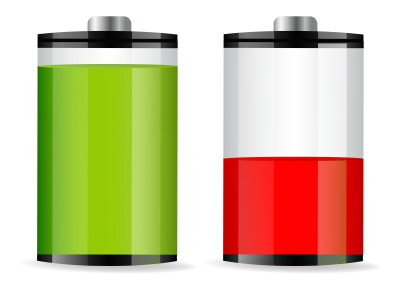|
Basic Principles of Advanced Batteries and Super Capacitors, Most Important Types and How They Work
In this session, we will explain how batteries and super-capacitors work. Review in brief the most important types of batteries: primary, secondary, aqueous, non-aqueous, stationary, flow and more. Some basic principles of electrochemical energy storage & conversion. We will also mention fuel cells in order to complete the picture.
|
Review of Main Battery Problems
The most important components of batteries, their selection and structure including limitations of battery systems in terms of voltage, capacity, energy & power density, and cycling. Failure mechanisms of Li, Li ion, lead acid batteries. Thermal behavior of batteries, possible thermal run-away events. Basic safety matters in production, operation, recycling. Temperature limitations (low, high), impedance development (detrimental surface phenomena) and bulk degradation upon cycling rechargeable batteries.
|
Which Experiments to Select and Correctly Read Basic Electrochemical Data
Electrochemical techniques, spectroscopic and microscopic tools for the analysis of batteries and battery components. Basic electrochemical response of electrodes and battery systems. Correct design of experiments. Important techniques such as chrono-amperometry, chrono-potentiometry, cyclic voltammetry, electrochemical titration techniques (PITT, GITT) and impedance spectroscopy.
|
Review Anode & Cathode Materials for Li Rechargeable Batteries
Most important anode and cathode materials for Li and Li ion batteries. Examine characterization tools and routes. Review main structures of Li intercalation compounds: carbons, graphite, lithiated transition metal oxides and Li metal olivines. Examine Li intercalation reactions, Li alloying reactions (e.g. with silicon, tin, binary and ternary metallic compounds and Li conversion reactions as main electrodes reactions in Li ion batteries). Discuss air and sulfur electrodes, in relevance to Li batteries.
|
|
Review Electrolyte Solutions for Li Batteries
Various aspects of electrolyte solutions for Li batteries: relevant families of non-aqueous solvents, how to choose and how to characterize, relevant Li salts available and the criteria for their selection. Electrochemical windows, ionic conductivity – how it is determined and measured (including temperature effects). Main reactions that limit the electrochemical windows of electrolyte solutions for Li batteries. Possible gas formation, passivation phenomena, thermal reactions and the conditions for electrochemical and thermal stability.
Describe in brief some solid electrolytes: gels, polymeric matrices, ceramic electrolytes.
|
Review Battery Engineering Aspects- Current Collectors, Separators, Conductive Additives
'Non reactive' components in batteries: case, current collectors, separators, conducting additives, may be critically important for the good performance of batteries. The right selection of current collector materials, their stability and involvement in parasitic side reactions. Structures & properties of separators. Main aspects of composite electrodes preparation, the use of various conductive additives and their effect on the passivation properties of the electrodes. Structure-performance correlations, concentrating on engineering aspects.
|
Review Electrodes for Super Capacitors
Classify symmetric and a-symmetric capacitors, real electrical double layer capacitors (EDLC) and pseudo-capacitors, in which the electrodes contain surface red-ox moieties. How to prepare and characterize high surface area activated carbon electrodes for EDLC. Aqueous vs. non-aqueous EDLC – advantages and limitations. Relevant electrolyte solutions. Compare batteries and super-capacitors and examine how they complement each other.
|
Metal Air Batteries: Challenges, Reality & Chances for Success
Review in brief aqueous Al & Zn air batteries. Options to operate Li-air batteries (single or double compartments systems). Experiences accumulated with Li-air batteries, problems and chances for success. Examine the chances to develop rechargeable Li and Na batteries.
|



